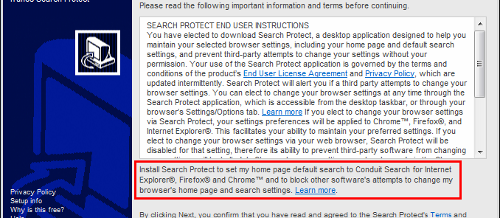
Lately I have been spending my days UNINSTALLING largely unwanted and unnecessary programs for the computers of several clients who have been complaining about browser redirection, unwanted pop-up ads, slow Internet connections, slow system performance, and boot failure. There is a great story on Sophos that explains why this happens
Usually I start by looking in the Control Panel under Programs and Features to see what is installed. Below is a table showing what I removed from two different systems:
|
SYSTEM 1
|
|
SYSTEM 2
|
This list is not exhaustive, there are many other culprits that I see. These were all legitimately downloaded and installed by the computer users, although without their direct knowledge or understanding. They all cause problems with system performance and reliability problems and most of them exist to serve pop-up ads or redirect you to website that have paid them for the privilege of stealing your eyeballs.
As a general rule of thumb, you should be looking for check boxes to uncheck any time you are doing an update, even Java and Adobe updates. Look at what you are agreeing to accept. In the illustration below, in addition to iTunes, the installer is going to add Search Protect by Conduit, which I know to cause web browsing and search problems.
What to avoid?
- Any and all browser toolbars, even the secure search toolbars from Norton, McAfee, and AVG. Totally unnecessary!
- Anything from Conduit or Search Conduit. Search and browser redirection to serve up paid ads and sites.
- Anything from Babylon – ditto. Also replaces your legitimate web search provider with their own.
- Any program that promises to speed up your PC – they are all pretty much worthless.
- Anything to do with Coupons. One client told me she saved a lot of money with these coupons, but I charged her $100 for my work. Not a great value.
- Most weather apps – Windows 8 has a good one built in, or stick to weather.com
- Many games are malware Trojans – avoid these too
- Media or video players – if the video requires a special player, it probably has embedded malware.
How this happens is laid out in detail on a story on the Sophos web site. They have terrific illustrations that show exactly what you see when you are installing crapware, like the one below that I borrowed from their story.
This example is from an alleged iTunes update. In this case, iTunes was not downloaded directly from Apple, but from an ad the appeared at the top of the search page, and clicking on the ad took the researcher not to Apple but to a downloader site, where iTunes and a whole bunch of useless and problematic add-ons were also installed. You really owe it to yourself and you wallet to slip over to Sophos and at least look at the pictures.
ShareFEB





About the Author:
I am a cybersecurity and IT instructor, cybersecurity analyst, pen-tester, trainer, and speaker. I am an owner of the WyzCo Group Inc. In addition to consulting on security products and services, I also conduct security audits, compliance audits, vulnerability assessments and penetration tests. I also teach Cybersecurity Awareness Training classes. I work as an information technology and cybersecurity instructor for several training and certification organizations. I have worked in corporate, military, government, and workforce development training environments I am a frequent speaker at professional conferences such as the Minnesota Bloggers Conference, Secure360 Security Conference in 2016, 2017, 2018, 2019, the (ISC)2 World Congress 2016, and the ISSA International Conference 2017, and many local community organizations, including Chambers of Commerce, SCORE, and several school districts. I have been blogging on cybersecurity since 2006 at http://wyzguyscybersecurity.com